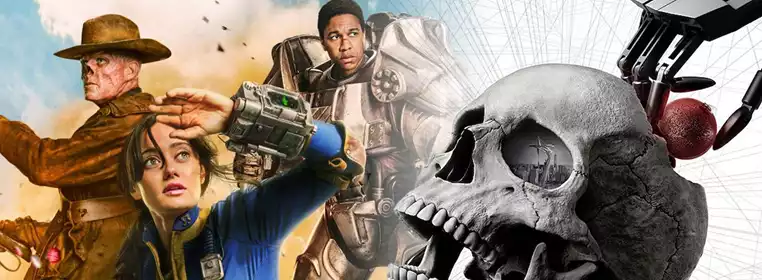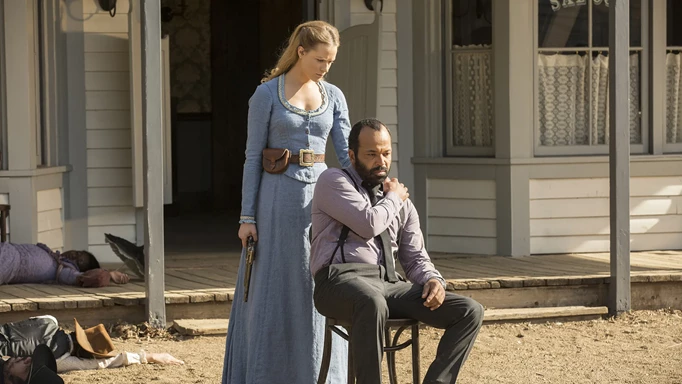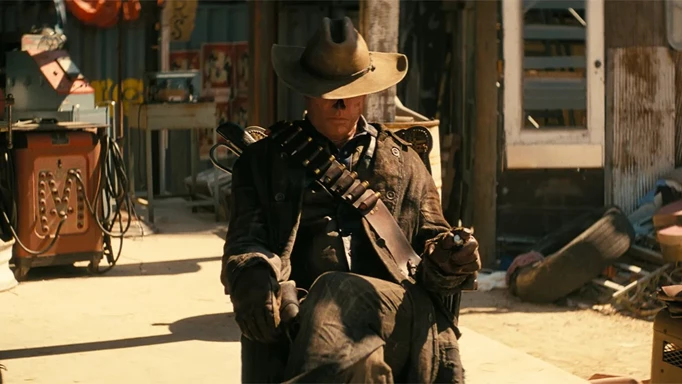Has Fallout’s future already been defined by Westworld’s failure?

Maybe it's the radiation poisoning talking, but we could have sworn that a TV series based on the Fallout franchise was not only greenlit in the first place but soared with critics and fans. No, we suppose we're not blinded by the bomb - Fallout is crushing it right now.
Even though Fallout danced around release dates like they didn't mean a thing, critics are loving the show's approach to the world established by Bethesda's iconic RPG series and led by Yellowjackets' fantastic Ella Purnell. Having dropped Season 1 in its entirety on Prime Video, it's reached franchise fans and total newbies alike with incredible excitement.
The bottom line is that The Ink Spots might not want to 'set the world on fire', but Fallout already has. It's great news for the ongoing trend of video games taking to the small screen, but unlike its uber-successful peers, there's one thing that tethers Fallout to a fate that nobody wants to see it follow.
Despite a strong start, there are worries that Fallout's bask in the light could give way to the ravages of the bomb faster than we'd ever want it to.
Fallout’s connection to Westworld is too strong to ignore

 Click to enlarge
Click to enlargeWe've all been having a 'blast' with Fallout, and it isn't often that we'd think the worst of a series that has clearly proved itself in quality. Still, its connections to Westworld are real, especially as a show that also blew fans away with its first instalment.
Jonathan Nolan and Lisa Joy made a name for themselves as collaborative powerhouses when they recreated and revolutionised Michael Crichton's 1974 Westworld movie for the small screen. Especially as its first series launched, they became the face of high-quality television for a brief flash.
But as Westworld had to improvise more and more with fewer predetermined stories to work with and more pressure to emphasise the unpredictable nature of its narratives, fans simply fell away from the show. Westworld trundled along to Season 4, but it haemorrhaged viewers with each episode.
It's an alarming trend that struck Westworld, and its leaders having their hands on Fallout might inspire concern. Thankfully, as we move into a new era of understanding for video game adaptations, it's a different ball game this time around. Fallout might be saved purely on the basis of being - well - Fallout.
Fallout benefits from the fusion core at its centre

 Click to enlarge
Click to enlargeThe key difference between Westworld and what we've been lucky to see in Fallout's success so far is the sheer endlessness of the world established in the games themselves.
Where Westworld trailed off into its own understanding of the world it established in a single film (and a smattering of its Futureworld sequel), Fallout can prosper not only with the vaults, cities, and establishments already introduced in the game but in those implied across the desolated United States.
The absurdity of Fallout as it delves into vaults full of clones who have forgotten how to speak anything but their own name, or sitcom-inspired simulations with entrapment plans. There are endless stories to tell in the world of Fallout - even without having to tap Fisto in (look him up, you'll love him).
We also have to look at the current landscape of video game adaptations - The Last of Us wowed audiences everywhere and earned its name as an HBO modern classic with hopes for four seasons in total on the horizon. This falls just short of Nolan and Joy's plans for five seasons of Westworld that we'll likely never see.
Even in the face of alarm from the most dedicated followers of Master Chief, Paramount's Halo series has just finished its second season. The general consensus around video game adaptations has levelled out in the wake of The Super Mario Bros. Movie pulling in over a billion dollars at the box office.
Westworld had its struggles by the time it petered out, but as if it was wearing its own hefty Power Armor, we're convinced Fallout can take a lot more flak before it's brought to its knees. With news of a second season already rumbling, the future looks brighter than ever for video game adaptations on the small screen. The horrors of nuclear desolation have never looked so good.
